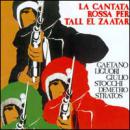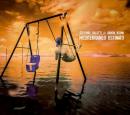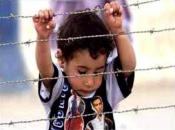وين ع رام الله
وين ع رام الله
ولفي يا مسافر وين ع رام الله
ما تخاف من الله
خذيت قليبي ما تخاف من الله
هي يا حبيبي هي يا حبيبي
غيرك ما بهوى... هي يا حبيبي
حظي ونصيبي... حظي ونصيبي
ردتك من الله ردتك من الله
ليش تجافيني
ليش تجافيني
ويش هاللي عملتو ليش تجافيني
بُعدك كاويني
وبنار الفرقة بُعدك كاويني
حبك ما بسلى
مهما يلوموني
حبك ما بسلى
وانت اللي أغلى من شوف عيوني
يحكولك عني
وايش شفتو مني
ليش تطاوعهم وايش شفتو مني
يا ما اقسى قلبك
ما بتسأل عني
ع اللي يحبك، ع اللي يحبك
ماتحن وتشفق ع اللي يحبك
عاود يا روحي
طولت الغيبة... عاود يا روحي
داوي الجروحي... بإيدك يا ولفي داوي الجروحي
وين ع رام الله
ولفي يا مسافر وين ع رام الله
ما تخاف من الله
خذيت قليبي ما تخاف من الله
هي يا حبيبي هي يا حبيبي
غيرك ما بهوى... هي يا حبيبي
حظي ونصيبي... حظي ونصيبي
ردتك من الله ردتك من الله
ليش تجافيني
ليش تجافيني
ويش هاللي عملتو ليش تجافيني
بُعدك كاويني
وبنار الفرقة بُعدك كاويني
حبك ما بسلى
مهما يلوموني
حبك ما بسلى
وانت اللي أغلى من شوف عيوني
يحكولك عني
وايش شفتو مني
ليش تطاوعهم وايش شفتو مني
يا ما اقسى قلبك
ما بتسأل عني
ع اللي يحبك، ع اللي يحبك
ماتحن وتشفق ع اللي يحبك
عاود يا روحي
طولت الغيبة... عاود يا روحي
داوي الجروحي... بإيدك يا ولفي داوي الجروحي
envoyé par CCG/AWS Staff - 24/9/2012 - 16:25
Langue: arabe
Ulteriore versione del testo proveniente da Questa pagina
Alternate lyrics from this page
Alternate lyrics from this page
وين ع رام الله
وبن ع رام الله
ولفي يا مسافر
داب قلبي والله
يوم اللي ودعتك
داب قلبي والله
وين يابو شامه
ناوي عالسافر
من بنات الشام
خوفي لتعشق
من بنات الشام
خوفي واحساسي
يا مسافر وحدك
من بنات الناس
لتعاشر سوانا
من بنات الناس
يا رب تعيدو
حبيب روحي
بالسلامه تعيدو
بالوشم عإيدو
مكتوب اسمي
بالوشم عإيدو
وبن ع رام الله
ولفي يا مسافر
داب قلبي والله
يوم اللي ودعتك
داب قلبي والله
وين يابو شامه
ناوي عالسافر
من بنات الشام
خوفي لتعشق
من بنات الشام
خوفي واحساسي
يا مسافر وحدك
من بنات الناس
لتعاشر سوانا
من بنات الناس
يا رب تعيدو
حبيب روحي
بالسلامه تعيدو
بالوشم عإيدو
مكتوب اسمي
بالوشم عإيدو
envoyé par Riccardo Venturi - 24/9/2012 - 16:45
Langue: anglais
[GOING TO RAMALLAH]
Where are you going? To Ramallah
Where to? To Ramallah
My travelling love... where to? To Ramallah
Aren’t you afraid of Allah
You took my heart, aren’t you afraid of Allah
Oh my love, oh my love
No one other than you.. oh my love
My fortune and my fate
I loved you for god sake
Why do you abandon (leave) me
Why do you abandon (leave) me
What’s my sin that made you leave me
Your being away, burns me
With fire of separation, you burn me
I don’t forget your love
No matter they blame me
I don’t forget your love
And you’re more precious than my sight
They tell you lies about me
What wrong did you see me do??
Why do you agree with them… what wrong did you see me doing
Oh, how cruel your heart
You don’t ask about me
About the one who loves you
When will you feel pity and compassion for me
Come back my soul
You ‘re away for long time.. come back my soul
Heal my wounds.. with your hand my love .. heal the wounds
Where are you going? To Ramallah
Where to? To Ramallah
My travelling love... where to? To Ramallah
Aren’t you afraid of Allah
You took my heart, aren’t you afraid of Allah
Oh my love, oh my love
No one other than you.. oh my love
My fortune and my fate
I loved you for god sake
Why do you abandon (leave) me
Why do you abandon (leave) me
What’s my sin that made you leave me
Your being away, burns me
With fire of separation, you burn me
I don’t forget your love
No matter they blame me
I don’t forget your love
And you’re more precious than my sight
They tell you lies about me
What wrong did you see me do??
Why do you agree with them… what wrong did you see me doing
Oh, how cruel your heart
You don’t ask about me
About the one who loves you
When will you feel pity and compassion for me
Come back my soul
You ‘re away for long time.. come back my soul
Heal my wounds.. with your hand my love .. heal the wounds
envoyé par CCG/AWS Staff - 24/9/2012 - 17:04
Langue: italien
Un tentativo di resa italiana
di Riccardo Venturi, 25 settembre 2012
di Riccardo Venturi, 25 settembre 2012
Non conoscendo, purtroppo, la lingua araba, ho semplicemente rielaborato la traduzione inglese. [RV]
DOVE? A RĀMALLĀH
Dove? A Rāmallāh.
Dove? A Rāmallāh.
Mio amore che viaggi, dove vai? A Rāmallāh.
Ma non temi Allāh
Tu che mi hai preso il cuore, non temi Allāh?
Amore mio, amore mio,
Non c'è altra che te, amore mio.
Sei la mia fortuna e il mio destino,
Ti ho amata per amor di Dio.
Perché mi lasci?
Perché mi lasci?
Che peccato ho commesso perché tu mi lasci?
La tua assenza mi brucia,
col fuoco della separazione mi bruci.
Non scordo il tuo amore,
non m'importa del biasimo
Non scorso il tuo amore
sei più preziosa dei miei occhi
Ti hanno mentito su di me,
che male mi hai visto fare?
Perché dai loro retta?
Che male mi hai visto fare?
Quant'è duro il tuo cuore,
non chiedi di me,
di colui che ti ama.
Quando proverai pietà per me?
Ritorna, anima mia,
Sei stata via a lungo
Ritorna, anima mia
Guarisci le mie ferite
e con la tua mano il mio amore
guarisci le mie ferite.
Dove? A Rāmallāh.
Dove? A Rāmallāh.
Mio amore che viaggi, dove vai? A Rāmallāh.
Ma non temi Allāh
Tu che mi hai preso il cuore, non temi Allāh?
Amore mio, amore mio,
Non c'è altra che te, amore mio.
Sei la mia fortuna e il mio destino,
Ti ho amata per amor di Dio.
Perché mi lasci?
Perché mi lasci?
Che peccato ho commesso perché tu mi lasci?
La tua assenza mi brucia,
col fuoco della separazione mi bruci.
Non scordo il tuo amore,
non m'importa del biasimo
Non scorso il tuo amore
sei più preziosa dei miei occhi
Ti hanno mentito su di me,
che male mi hai visto fare?
Perché dai loro retta?
Che male mi hai visto fare?
Quant'è duro il tuo cuore,
non chiedi di me,
di colui che ti ama.
Quando proverai pietà per me?
Ritorna, anima mia,
Sei stata via a lungo
Ritorna, anima mia
Guarisci le mie ferite
e con la tua mano il mio amore
guarisci le mie ferite.
×
![]()








Tradizionale Palestinese
A Folk-song from Palestina
الشعبية أغنية من فلسطين
Barbara Eramo: voce
Mario Rivera: basso acustico
Carlo Cossu: violino, canto diplofonico
Gabriele Coen: clarinetto, sax
Rossella Zampiron: violoncello
Leo Cesari: percussioni e batteria
Jamal Ouassini: violino
Hakeem Jaleela: voce
"The sights and sounds of the Arab Spring arriving from the streets of Tunis, Cairo and Damascus, make the mind return to the 1970's, when a wind of freedom blew across Europe and swept away the authoritarian regimes in Spain, Greece and Portugal.
Those squares are the same: the same faces, hopes, colours, sounds, songs.
So I began a journey back in time to rediscover the different types of music that tell the stories about the suffering and passion of the Mediterranean people. From the expulsion of the Sephardic Jews from Spain, to the Palestinian diaspora, from the Sardinian anthem (fruit of the French Revolution and the fight against the excessive power of the barons) to those authors who wrote music and ballads that were often very sweet and who were subjected to persecution, arrest and violence by the political powers that be. A struggle for freedom that today ideally combines the two shores of the Mediterranean and further demonstrates the strength of popular music as the voice of the people. In joy and in defeat."
"Quando dalle piazze di Tunisi, del Cairo, di Damasco sono arrivate le immagini e i suoni della Primavera araba la mente è corsa agli anni '70, quando l'Europa venne attraversata da un vento di libertà che spazzò via i regimi autoritari di Spagna, Grecia e Portogallo.
Quelle piazze sono le stesse: gli stessi volti, le speranze, i colori, i suoni, i canti.
Ho cominciato allora un viaggio nella memoria per riscoprire le tante musiche che hanno raccontato le sofferenze e le passioni dei popoli mediterranei. Dalla cacciata degli ebrei sefarditi dalla Spagna, alla diaspora palestinese, dall'inno sardo figlio della rivoluzione francese contro lo strapotere dei baroni, fino ad arrivare a quegli autori che avevano scritto musiche e ballate spesso dolcissime ed erano stati oggetto di persecuzioni, arresti, violenze da parte del potere politico. Una lotta per la libertà che oggi unisce idealmente le due sponde del Mediterraneo e dimostra ancora una volta la forza della musica popolare come voce del popolo. Nella gioia e nelle sconfitte." - Stefano Saletti
"Ask any Palestinian who lives in Rome or in London to sing a song that recounts the love for their land and they will sing you Wein a Ramallah. The title translates as "We're going to Ramallah" and is a song that has become a symbol of the Palestinian Diaspora around the world."
"Chiedete a un palestinese che vive a Roma o a Londra di cantare un brano che racconti l'amore per la propria terra e lui intonerà Wein a Ramallah. Il titolo si traduce come "Stiamo andando a Ramallah" ed è diventato il brano simbolo della diaspora palestinese in tutto il mondo."